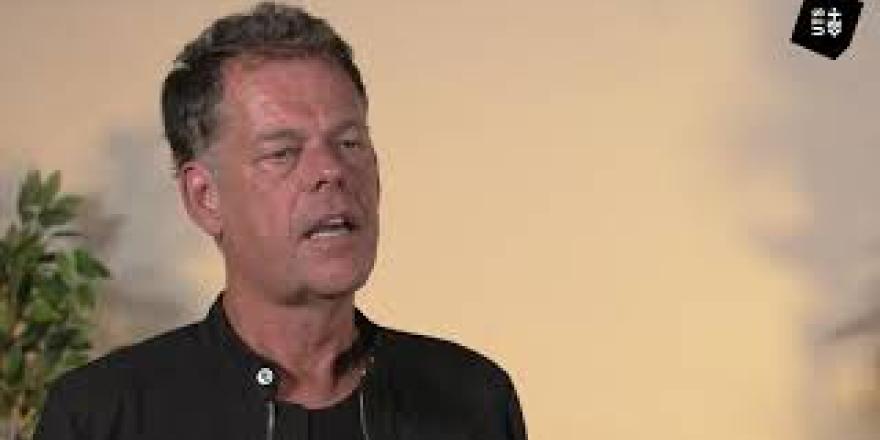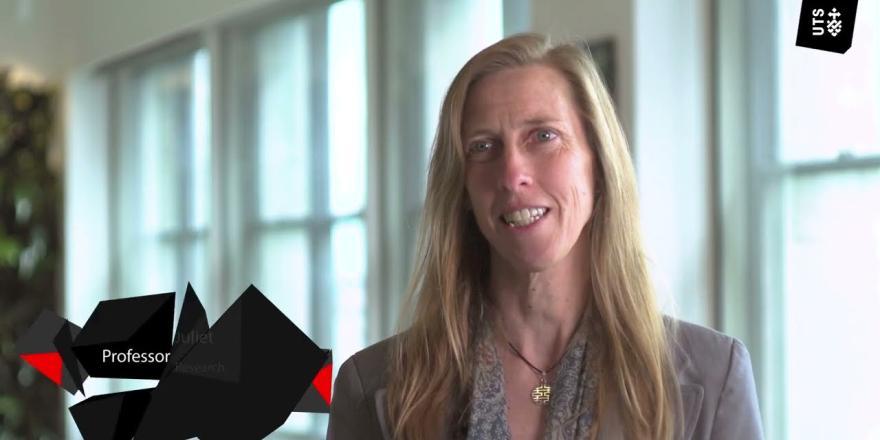ISF will share research in WASH and pathways to net zero at the UN event in 2023.

The United Nations Conference of the Parties of the YNFCC (COP27) will take place from 7 to 18 November in Sharm El-Sheikh, Egypt . ISF researchers will join the important conversation and present their research across a number of sessions. Here are some highlights:
- 10 Nov 22 – Net-Zero pathways for Industry Sectors: Science based targets and sectoral climate clubs to trigger industrial transformation
In this session, Associate Professor Sven Teske will take part in a presentation of insights from the One Earth Climate Model developed by ISF. The first part of this event provides insights on appropriate sectoral target setting developed in close cooperation with the Net-Zero Asset Owner Alliance (NZAOA) and the United National Principles Responsible Investments (UN PRI). The second part of the side event discusses how an intergovernmental industry sectoral alliance or sectoral climate club could potentially help overcome the challenges by basic materials processing industries and what would be its main strategies. - 10 Nov 22 – Moving closer to climate neutrality - pathways and collaboration
Associate Professor Sven Teske will take part in a presentation of insights from ongoing research on mitigation pathways and considerations for more effective international collaboration, with a focus on industrial sectors. It will refer to ISF's recent work in mapping pathways to net zero for 12 main industry sectors. This research was supported by the Net-Zero Asset Owner Alliance (NZAOA) and draws on the One Earth Climate Model, developed in 2019 for the Leonardo DiCaprio Foundation. - 14 Nov 22 – Pathways towards a renewable energy future – exploring multiple opportunities
Associate Professor Sven Teske will join a panel of experts to discuss how to make renewables a political priority for energy security, climate action and development. For this, he will draw on ISF's evolving work using the One Earth Climate Model, developed in 2019 for the Leonardo DiCaprio Foundation. - 17 Nov 22 – Empowered Climate Resilience: Women as change-makers for water-sensitive climate action
In this Water Pavilion session, Professor Juliet Willets and Melita Grant will speak to their recent work in inclusive water, sanitation and hygiene (WASH) and their partnership with Water for Women. - 17 Nov 22 – A call to action for climate-resilient and low-carbon sanitation
In this session, Professor Juliet Willets will talk about ISF's research for the Bill and Melinda Gates Foundation and ISF's recent report looking at Climate change and urban sanitation. The session will launch a call-to-action organised by UNICEF and co-signed by UTS, Global Green Growth Institute, World Bank Group, Bill and Melinda Gates Foundation, UN Habitat and the World Health Organization. The call-to-action seeks to ensure that climate-resilient sanitation services are accessible to 3 billion people in developing countries by 2030. It is aimed at governments, development partners and civil society organisations, donors, academic and research institutions, the private sector and climate activists.
ISF COP27 - Sven Teske

Dr Sven Teske:
My name is Dr Sven Teske. I'm an Associate Professor and Research Director at the University of Technology Sydney at The Institute for Sustainable Futures.
My research area are Net Zero Pathways and 100% renewable energy scenarios, specifically focused on industry sectors and developing countries. At the climate conference in Shar, El-Sheikh in Egypt, I will present two different research results.
One Net Zero Pathways for specific industry sectors, which serve as key performance indicator for the finance industry and the finance industry uses those key performance indicators which are basically based on the mission on an energy use in order to set target for their investment portfolio and assets.
The second presentation is about an energy scenario we did for Nepal. That energy scenario serves two purposes. One, it provides a practical plan how to expand sustainable and renewable electricity supply to improve the energy services in Nepal and secondly it forms a reporting for the United Nations in terms of the current and future greenhouse gas emissions.
Our research worked with the One Earth Climate Model is quite practical. So, what we provide is practical pathways for industries and countries how to decarbonise their energy supply and how to reduce energy demand.
-end-
ISF COP27 - Juliet Willetts

Juliet Willetts:
So, I am Juliet Willetts, a Professor and Research Director at the Institute for Sustainable Futures, University of Technology Sydney.
I work on water and sanitation in Asia and the Pacific. At COP I’ll be presenting on the links between sanitation and climate change. So, we recently undertook a landscape study for the Bill and Melinda Gates Foundation and this study looked at what some of those links are and how they can be addressed.
So, the links are clear. During flooding, toilets become inaccessible or sometimes they collapse. During droughts and water scarcity, women and children are traveling further to collect water for the toilets. Sewers become blocked or overflow into rivers and lakes. And in dense urban areas, you can have faecal matter that can spread into the streets and cholera and other diseases like that run rife.
The damage to infrastructure and the economic losses due to reduced health and productivity are significant. So, this study brings together the views of more than 60 organisations from city and national governments from international and local NGOs and private sector organisations from more than 25 countries.
Sanitation is a public service that’s a risk due to climate change and deserves more attention in climate policy dialogue. Hence, we developed this call to action launched at COP to draw more attention to the issue.
The call is significant because it lays out the absolute enormity of the challenge, to provide access to climate resilient sanitation services to 3.6 billion people that don’t have access to those services with many of them living in water stressed and flood-prone areas.
So, it confirms the risk climate change poses. Without access to this basic service, we can’t have resilient communities, resilient cities and a just world.
-END-
For more information, other sessions and recordings visit the COP27 website.

